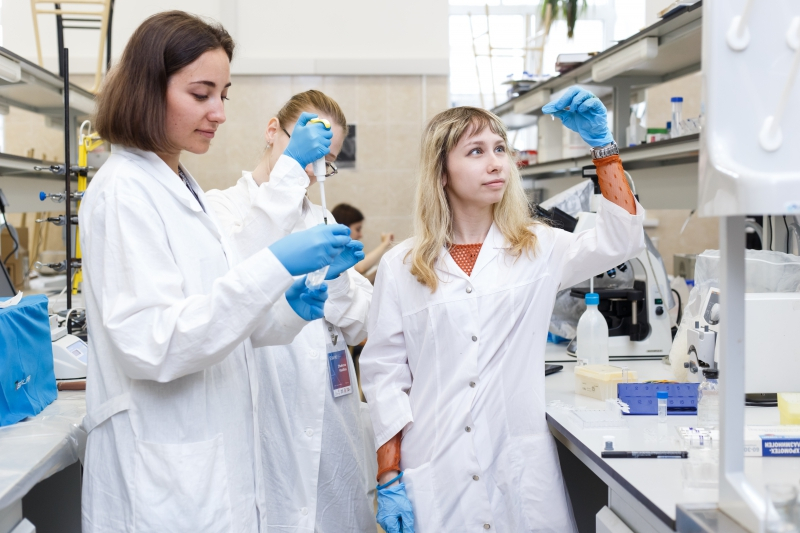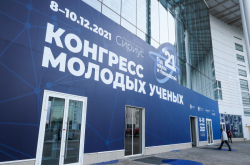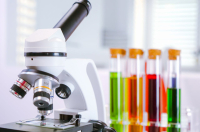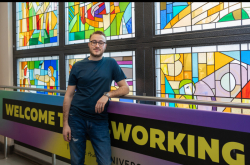Behind the scenes
Life sciences is an umbrella term that encompasses various scientific fields, some of which had been pursued at ITMO University long before the launch of the new school. In 2011, ITMO merged with St. Petersburg State University of Refrigeration and Food Processing Technologies and launched the School of Biotechnology and Cryogenic Systems. The school aimed to solve a variety of tasks, from the development of technologies meant to improve quality of life to the study of functional materials and renewable resources. Over time, however, the scope of its responsibilities has broadened to address new pressing challenges.
To keep up with the latest trends of the digital world, ITMO University launched several interdisciplinary educational programs. In 2014, the university welcomed solution chemistry experts Alexander and Vladimir Vinogradov who two years later established the ChemBio Cluster and began to develop new fields in chemistry, biology, and materials science at the university. Later on, their ideas were supported by Ekaterina Skorb, the founder of the Infochemistry Scientific Center, and Mikhail Kurushkin, the current dean of the Faculty of Biotechnologies.
Thanks to Project 5-100, which was completed in 2020, the university entered the global top-400 of the QS World University Rankings. Such impressive results were also closely tied to the internal changes that occurred at the university. At that time, ITMO introduced new schools that were designed not only to bring together the resources of various units but also to grow them. New challenges called for collaboration, and that was what brought about this new school, which is meant to bring together all the university’s key achievements in life sciences.
“While the late 20th century was all about IT, the 21st century is indeed the time of life sciences,” notes Ilya Kuftiryov, the head of ITMO’s School of Life Sciences.
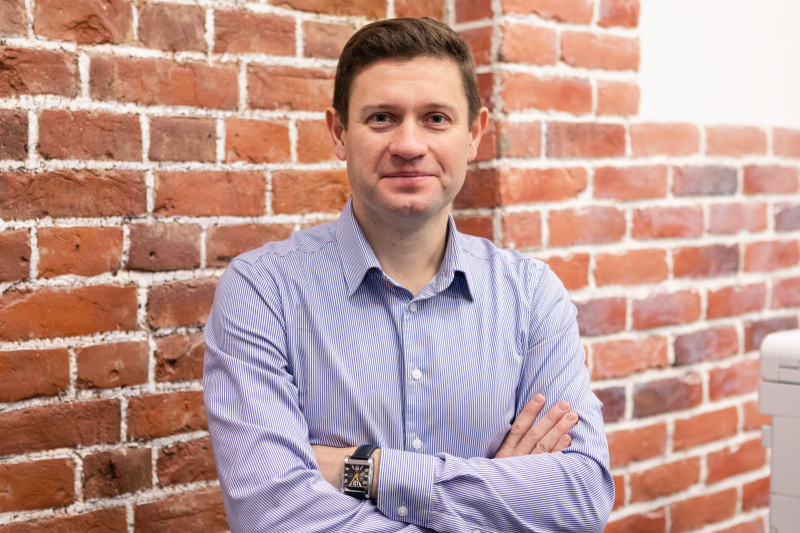
Ilya Kuftiryov. Photo by Dmitry Grigoryev, ITMO.NEWS
Structure of the new school
The overall purpose of life sciences is to improve living standards and increase life expectancy. This can be achieved by addressing the issues of healthcare, agriculture, food security, and ecology in an integrated manner. To that end, ITMO’s School of Life Sciences unites the ChemBio Cluster, the Infochemistry Scientific Center, the Faculty of Biotechnologies, and the Laboratory for Intelligent Technologies in Infochemistry.
ITMO University introduces new educational programs to train job-ready versatile specialists able to meet the challenges of modern society. Last year, the Infochemistry Scientific Center together with the School of Computer Technologies and Control developed a unique program in infochemistry for Bachelor’s students, while the Faculty of Biotechnologies and the ChemBio Cluster jointly launched the Applied Genomics program for Master’s students. Moreover, the Faculty of Biotechnologies gained the support of business representatives and started to train future foodtech specialists. The head of the relevant Master’s program is Olesya Volokh, PhD, the head of research and nutritiology at Danone Russia.
“What’s important is that our students identify themselves with ITMO as a whole and not a particular school or faculty. We don’t want them to feel divided when they, say, attend joint classes. This is an effective approach, and we stand by the concept of integration. Our school looks for students who are not only great at chemistry but also know what Shannon’s information entropy is and can solve differential equations,” stresses Ekaterina Skorb, the head of the Infochemistry Scientific Center.
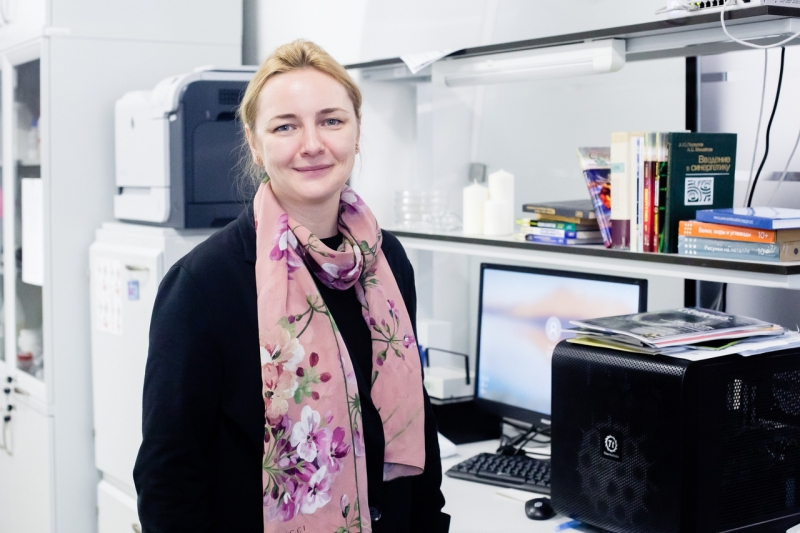
Ekaterina Skorb. Photo by ITMO.NEWS
This year, the ChemBio Cluster will launch Russia’s first Master’s program in chemistry and artificial intelligence. The program is designed to train world-class specialists who are able to use the advances of artificial intelligence and machine learning to design next-gen materials for modern economies. The Industrial Biotechnology Master’s program offered by the Faculty of Biotechnologies will, too, welcome future specialists in digitalization and automation of various biotechnological productions this year. The program’s partners are the Russian pharmaceutical company GEROPHARM and the biotechnology research company Innova Plus. The content of the program will be overseen by Ruslan Al-Shekhadat, the CEO and scientific leader of Innova Plus.
The departments also regularly conduct joint research investigations and projects since some products could not happen without a combination of different perspectives. For instance, the ChemBio Cluster’s project on point-of-care testing, which was commissioned by the Federal Medical-Biological Agency, resulted in a robot that can identify pathogens in human body fluids and diagnose diseases of the central nervous system.
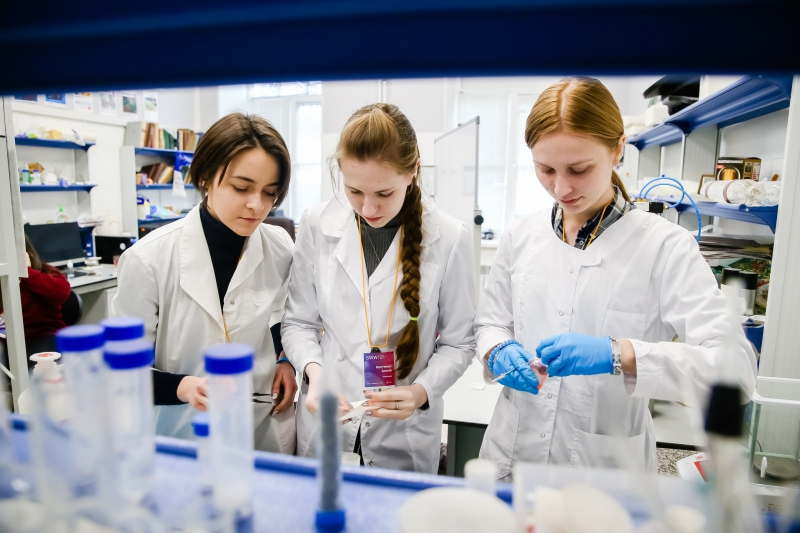
SCAMT Workshop Week. Photo by ITMO.NEWS
At the same time, the departments continue to build connections with other institutions worldwide. For example, students of the ChemBio Cluster have the opportunity to do their internships and research at the University of Central Florida, the University of Leipzig, and others. In particular, PhD students and staff members of the SCAMT Lab are currently studying spider webs together with their colleagues from the Swedish University of Agricultural Sciences. Furthermore, the Infochemistry Scientific Center houses two joint laboratories: AI-Inspired Smart and Functional Materials (with the National University of Singapore) and Active Materials and Interfaces (with the University of Liverpool).
Apart from international research opportunities, students can also try themselves in various fields by working at energy corporations like Gazprom and Sibur, biotechnology companies like MBC Technology and BIOCAD, or explore agriculture together with EFKO Group and Galaktica. In the future, even more industrial partners are expected to join the school.
“In addition to our current partners HEINEKEN and Danone Russia, we look forward to working with Valio and Jacobs Douwe Egberts. Together we will train world-class specialists who will then have the chance to pursue their careers at leading companies,” says Mikhail Kurushkin, the dean of the Faculty of Biotechnologies.
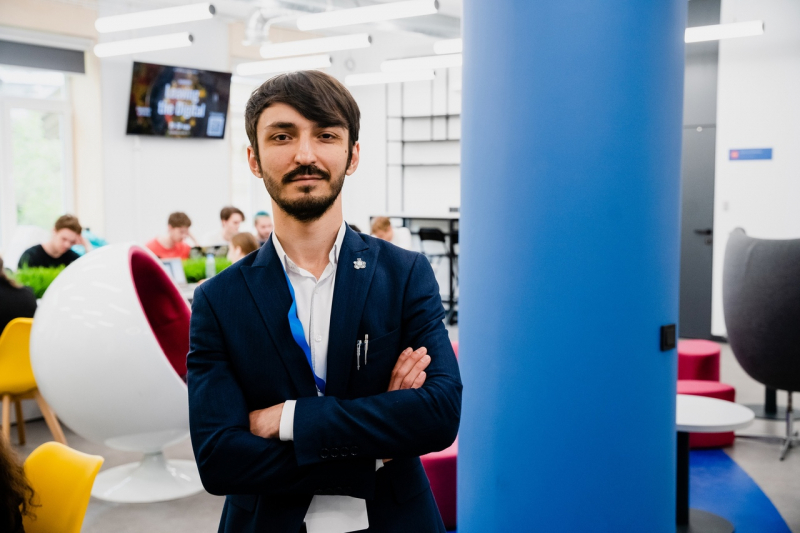
Mikhail Kurushkin. Photo by ITMO.NEWS
Prospects
As the school has enhanced its interdisciplinary cooperation, its next step is to use digital technologies in transdisciplinary research.
“On the next step of our development, we’d like to, for one, move away from the notion of a unit and start to think in terms of projects and PI schools and, secondly, introduce the concept of useful results. Success no longer means an article published in a Q1 journal if that’s its only purpose. Success is when such articles make breakthroughs, discover new scientific fields, or drastically change the existing ones,” explains Vladimir Vinogradov.
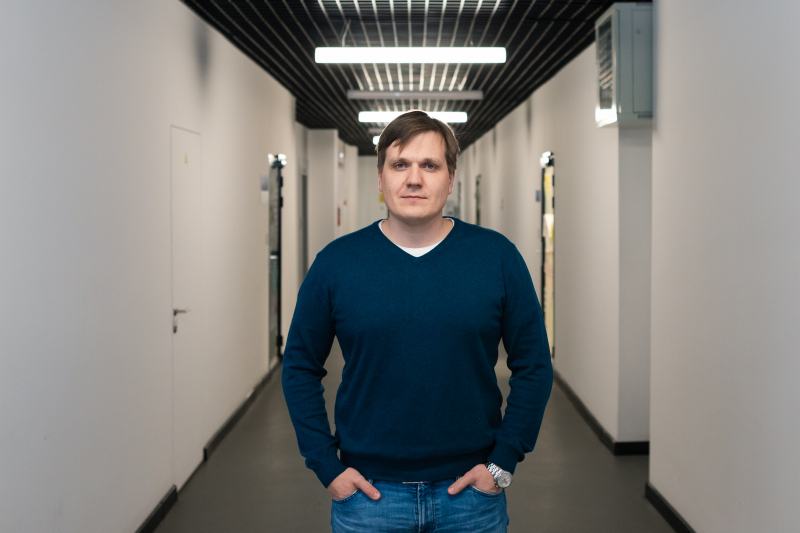
Vladimir Vinogradov. Photo by Dmitry Grigoryev, ITMO.NEWS
In the long run, the school plans to cooperate with the international innovative biotechnology company BIOCAD to boost R&D (research and development) and launch a life sciences startup studio for student ideas. Other than that, the school will open new interdisciplinary structural units in IT and chemistry, and molecular engineering and biotechnology.
“When we all got together, we had to rethink our views on how to teach and do science. In this sense, we will make sure that our students are not limited by their school but have access to all the resources possible. Hopefully, in a few years, when students are asked about where they study, they will say the School of Life Sciences, not the Faculty of Biotechnologies, the ChemBio Cluster, or the Infochemistry Scientific Center,” concludes Ilya Kuftiryov.
